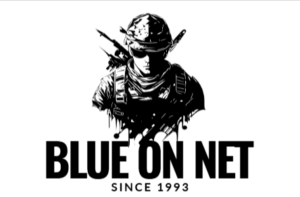While military strategists focus on preventing blue-on-blue incidents through improved technology and tactics, the psychological aftermath of friendly fire events creates wounds that extend far beyond the immediate physical casualties. These incidents leave lasting scars on survivors, perpetrators, and entire military units, creating a complex web of trauma that military mental health professionals are still learning to address.
The Unique Nature of Friendly Fire Trauma
Blue-on-blue incidents create a fundamentally different type of psychological trauma than enemy-inflicted casualties. When soldiers are wounded or killed by enemy action, their comrades can channel grief and anger toward a clear adversary. However, when the harm comes from fellow service members, this natural psychological response becomes confused and misdirected.
Survivors of friendly fire often experience what psychologists term “betrayal trauma” – a profound sense of violation that occurs when harm comes from those who were supposed to provide protection and safety. This trauma is compounded by the military’s emphasis on unit cohesion, brotherhood, and mutual protection. When these fundamental bonds are accidentally shattered, the psychological foundation of military service itself can feel compromised.
The randomness of friendly fire incidents adds another layer of psychological complexity. Unlike enemy attacks, which soldiers can rationalize as part of warfare’s inherent dangers, blue-on-blue incidents feel senseless and preventable. This perception can lead to persistent feelings of vulnerability and hypervigilance, as soldiers struggle to maintain trust in their own forces’ competency and coordination.
Impact on Those Responsible
Perhaps even more devastating than the trauma experienced by survivors is the psychological burden carried by service members who accidentally harm their own comrades. These individuals face what mental health professionals describe as “moral injury” – psychological damage resulting from perpetrating, witnessing, or failing to prevent acts that violate fundamental moral beliefs.
Soldiers responsible for friendly fire incidents often experience intense guilt, shame, and self-blame that can persist long after their military service ends. Unlike combat-related PTSD, which typically involves fear-based symptoms, moral injury manifests as deep depression, social withdrawal, and profound loss of self-worth. Many struggle with suicidal ideation, substance abuse, and difficulty maintaining personal relationships.
The military’s investigative process, while necessary for learning and prevention, can inadvertently worsen psychological trauma for those involved. Lengthy investigations, media attention, and potential disciplinary action can create additional stress and prevent the natural healing process from beginning. Some service members report feeling more traumatized by the aftermath and investigation than by the original incident itself.
Unit-Wide Psychological Effects
Blue-on-blue incidents don’t just affect direct participants; they create ripple effects throughout entire military units. Witnessing the trauma of comrades involved in friendly fire can trigger vicarious trauma in other unit members. The incident becomes part of the unit’s collective memory, potentially affecting morale, trust, and operational effectiveness for months or years afterward.
Leadership faces particular challenges in managing unit psychology following friendly fire incidents. Commanders must balance the need for accountability and learning with the imperative to maintain unit cohesion and combat effectiveness. They often struggle with their own feelings of responsibility while simultaneously supporting traumatized subordinates and maintaining operational readiness.
The military’s emphasis on resilience and emotional strength can create additional barriers to healing. Service members may feel pressure to “tough it out” or worry that seeking mental health support could negatively impact their careers. This cultural dynamic can prevent individuals from accessing needed treatment and prolong psychological suffering.
Treatment and Recovery Approaches
Mental health professionals working with friendly fire survivors have developed specialized treatment protocols that address the unique aspects of this trauma. Traditional PTSD treatments often prove insufficient because they don’t adequately address the moral and trust-related dimensions of friendly fire incidents.
Cognitive processing therapy has shown promise in helping individuals work through feelings of guilt and self-blame. This approach helps service members examine and challenge distorted thinking patterns that contribute to ongoing psychological distress. Group therapy sessions with other friendly fire survivors can provide validation and reduce feelings of isolation.
For those responsible for incidents, treatment often focuses on moral repair – helping individuals rebuild their sense of moral identity and self-worth. This process may involve making amends where appropriate, finding ways to honor fallen comrades, and developing a more balanced understanding of their role in the incident.
Family therapy plays a crucial role in recovery, as friendly fire trauma often affects spouses, children, and parents of service members. Families may struggle to understand why their loved one is so profoundly affected by what outsiders might view as an “accident of war.”
Building Resilience and Prevention
Modern military psychology emphasizes building psychological resilience before traumatic events occur. Pre-deployment training now includes discussions about friendly fire possibilities and coping strategies. This preparation doesn’t eliminate trauma but can provide frameworks for understanding and processing these experiences if they occur.
Peer support programs have proven particularly valuable in friendly fire recovery. Having fellow service members who understand military culture and the unique pressures of combat provide support can be more effective than traditional civilian counseling approaches.
Long-term Implications and Hope
Recovery from blue-on-blue psychological trauma is possible, though it often requires years of dedicated effort and professional support. Many survivors eventually find meaning in their experiences by becoming advocates for improved safety protocols, mental health awareness, or peer support programs.
The military’s growing recognition of friendly fire’s psychological dimensions represents important progress. By acknowledging these hidden wounds and developing specialized treatment approaches, military mental health professionals are helping ensure that those who serve their countries receive comprehensive care for all types of combat-related trauma.
Understanding the psychological impact of blue-on-blue incidents ultimately serves the broader goal of military readiness and effectiveness. Psychologically healthy service members are better soldiers, better leaders, and better representatives of the values they’ve sworn to defend.
